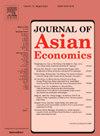Legislating filial obligations: Property rights and filial piety in shogunate Japan
IF 3.4
3区 经济学
Q1 ECONOMICS
引用次数: 0
Abstract
Continental European countries and Japan maintain far larger welfare states than their Anglophone counterparts do, particularly in terms of elderly care. One reason for this difference is the filial obligations of adult children toward their retired parents, as mandated by the family laws of continental European countries and Japan, such that the welfare state and family security are substitutes; a retreat of the state’s role implies an increase in the burden incurred by the family. We investigate Japan’s evolutionary process of filial support, ranging from an encouraged norm to a legal requirement for the protection of property rights in the eighteenth century under the Edo (Tokugawa) shogunate law. Facing its first population aging in the eighteenth century, Tokugawa Japan transformed filial support as a norm into a legal mandate by conditioning the protection of family property rights on the fulfillment of filial obligations by the household head who inherited family property before his parents’ death. Nonfulfillment necessitated the revocation of household head status and devolution of the family property to the new household head, through which the shogunate indirectly enforced filial obligations. While the household head revocation system was not incorporated into the Civil Code of 1896, the Civil Code explicitly defined filial obligations as being enforceable on their own. The current large welfare state of Japan is directly rooted in filial obligations stipulated by its modern family law, and the origin of its filial obligations dates back to a legislation by the shogunate in the late eighteenth century.
孝道立法:日本幕府的财产权与孝道
欧洲大陆国家和日本的福利水平远远高于英语国家,尤其是在老年人护理方面。造成这种差异的一个原因是,欧洲大陆国家和日本的家庭法规定,成年子女对退休的父母负有孝顺的义务,因此福利国家和家庭保障是替代品;国家角色的退让意味着家庭负担的增加。我们研究了日本孝道支持的演变过程,从18世纪江户幕府法律下的鼓励规范到保护财产权的法律要求。面对18世纪第一次人口老龄化,德川日本将孝道赡养作为一种规范转变为一项法律任务,将家庭产权的保护以在父母去世前继承家庭财产的户主履行孝道义务为条件。如果不能履行,就必须撤销户主身份,并将家庭财产移交给新的户主,通过这种方式幕府间接地执行孝道义务。虽然户主撤销制度并没有被纳入1896年的《民法典》,但《民法典》明确规定孝顺义务可以自行执行。目前日本庞大的福利国家直接植根于其现代家庭法规定的孝道义务,其孝道义务的起源可以追溯到18世纪末幕府的一项立法。
本文章由计算机程序翻译,如有差异,请以英文原文为准。
求助全文
约1分钟内获得全文
求助全文
来源期刊

Journal of Asian Economics
ECONOMICS-
CiteScore
4.70
自引率
9.40%
发文量
90
期刊介绍:
The Journal of Asian Economics provides a forum for publication of increasingly growing research in Asian economic studies and a unique forum for continental Asian economic studies with focus on (i) special studies in adaptive innovation paradigms in Asian economic regimes, (ii) studies relative to unique dimensions of Asian economic development paradigm, as they are investigated by researchers, (iii) comparative studies of development paradigms in other developing continents, Latin America and Africa, (iv) the emerging new pattern of comparative advantages between Asian countries and the United States and North America.
 求助内容:
求助内容: 应助结果提醒方式:
应助结果提醒方式:


